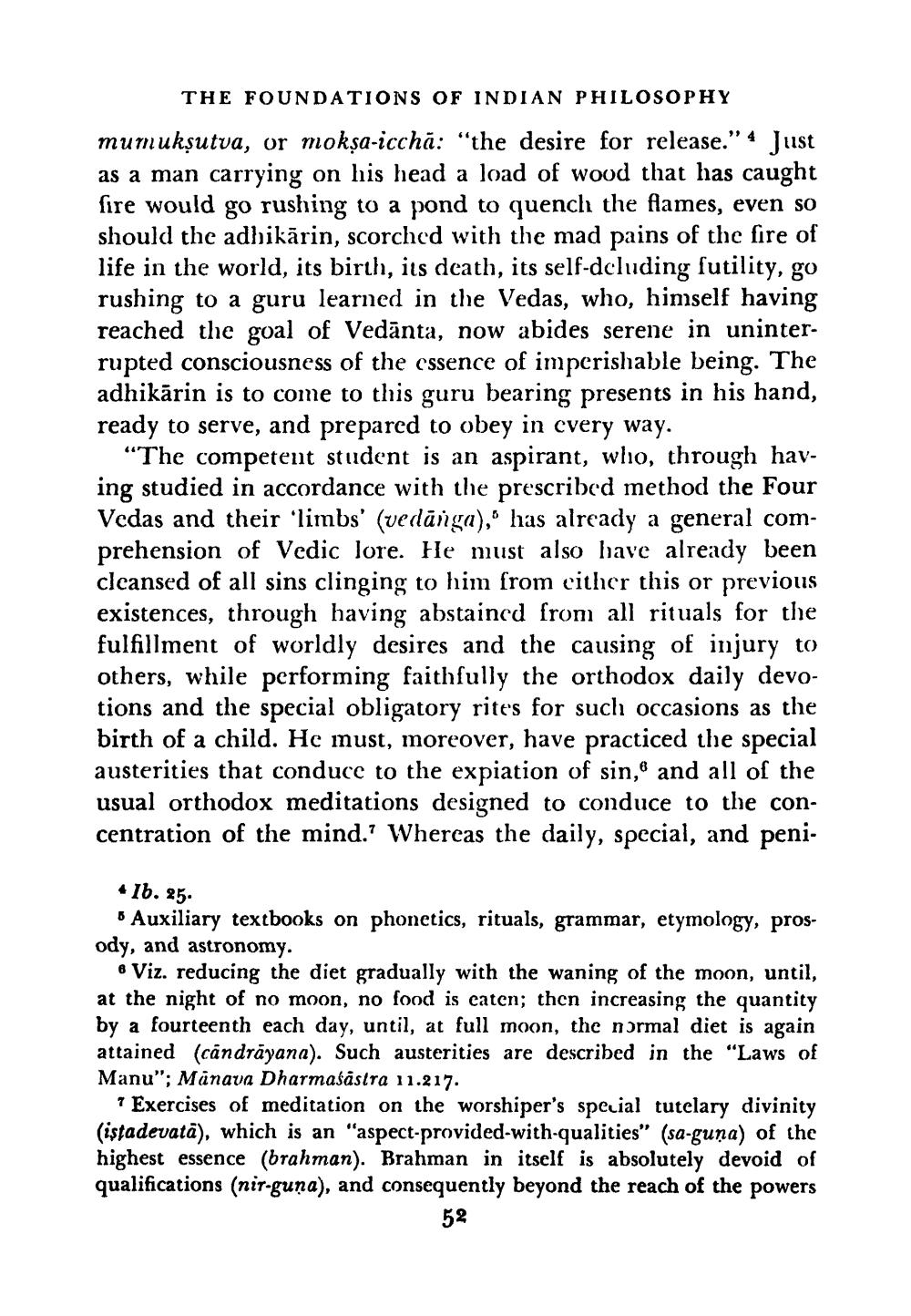________________
THE FOUNDATIONS OF INDIAN PHILOSOPHY
mumukṣutva, or mokşa-icchă: "the desire for release." 4 Just as a man carrying on his head a load of wood that has caught fire would go rushing to a pond to quench the flames, even so should the adhikärin, scorched with the mad pains of the fire of life in the world, its birth, ils death, its self-dcluding futility, go rushing to a guru learned in the Vedas, who, himself having reached the goal of Vedānta, now abides serene in uninterrupted consciousness of the essence of imperishable being. The adhikārin is to come to this guru bearing presents in his hand, ready to serve, and prepared to obey in cvery way.
“The competent student is an aspirant, wlio, through having studied in accordance with the prescribed method the Four Vedas and their 'limbs' (vedānga), has already a general comprehension of Vedic lore. He must also have already been cleansed of all sins clinging to him from cither this or previous existences, through having abstained from all rituals for the fulfillment of worldly desires and the causing of injury to others, while performing faithfully the orthodox daily devotions and the special obligatory rites for such occasions as the birth of a child. He must, moreover, have practiced the special austerities that conduce to the expiation of sin, and all of the usual orthodox meditations designed to conduce to the concentration of the mind.? Whereas the daily, special, and peni
• Ib. 25.
Auxiliary textbooks on phonetics, rituals, grammar, etymology, prosody, and astronomy.
Viz. reducing the diet gradually with the waning of the moon, until, at the night of no moon, no food is caten; then increasing the quantity by a fourteenth each day, until, at full moon, the normal diet is again attained (cândrāyana). Such austerities are described in the "Laws of Manu"; Mänava Dharmasastra 11.217.
7 Exercises of meditation on the worshiper's special tutelary divinity (istadevatā), which is an "aspect-provided-with-qualities" (sa-guņa) of the highest essence (brahman). Brahman in itself is absolutely devoid of qualifications (nir-guna), and consequently beyond the reach of the powers
52




